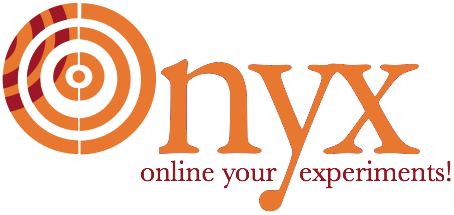

Onyx is a toolkit that makes it easy to build, run, and study system-level experiments on sequentially-structured data. It was originally created to make it straightforward to translate the whiteboard sketches of speech scientists into experiments with data flowing through processing networks. It has excellent support for the streaming processing of conceptually unbounded amounts of data for machine-learning and statistical-inference applications.
Onyx is written as a set of modular, library components that users extend and connect in order to create and run their experiments. Being a library of components, Onyx is readily entendable in ways that are not usually possible with executable components. Onyx uses Python as its programming language, and many of its strengths come from the power and simplicity of Python itself, and from Python's high-performance numerical extensions.
Onyx has an open-access license. Onyx was originally written by Hugh Secker-Walker and Ken Basye.
Copyright 2009 - 2011 The Johns Hopkins University Licensed under the Apache License, Version 2.0 (the "License"). You may not use Onyx except in compliance with the License. You may obtain a copy of the License at http://www.apache.org/licenses/LICENSE-2.0 Unless required by applicable law or agreed to in writing, software distributed under the License is distributed on an "AS IS" BASIS, WITHOUT WARRANTIES OR CONDITIONS OF ANY KIND, either express or implied. See the License for the specific language governing permissions and limitations under the License.
|
Introduction to Onyx Installation and User guide Tutorials |
Reference documentation Complete Table of Contents Developer guide |
|
Complete Module Index General Index |
Glossary Search page |
Onyx is hosted at SourceForge. There are released files (tarballs) and the latest released version of this documentation. See the Installation and User guide for getting started using released tarballs.